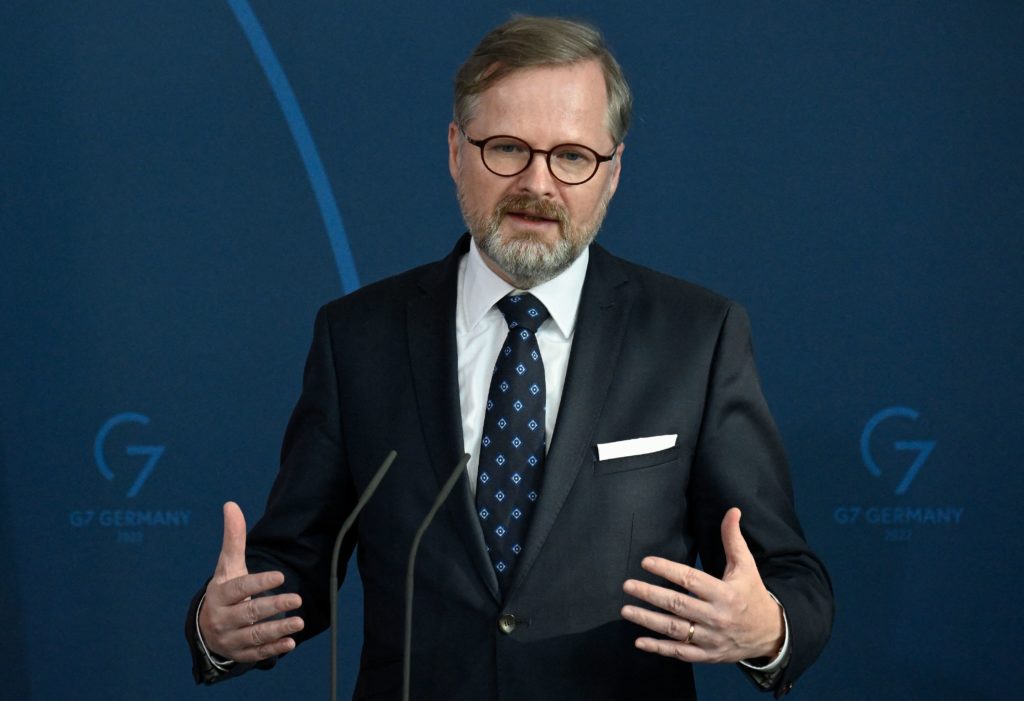Press play to listen to this article
PRAGUE — In the Czech Republic, the prime minister has blasted the EU’s Green Deal as an “existential threat.”
The country’s carmakers agree — but say that’s only because the government has failed to prepare for the transition.
The bloc’s plan to accelerate the shift to electric vehicles by outlawing pollution-emitting internal combustion engines by 2035 — part of Brussels’ effort to go climate neutral by 2050 — has not gone down well in Central European countries whose economies are heavily reliant on the car industry.
Carmakers, lured by cheap skilled labor and decent infrastructure, have invested billions in the region, spawning a huge network of suppliers and production sites. In the Czech Republic, the auto industry accounts for close to 10 percent of GDP and employs around 500,000 people. Slovakia is even more exposed, with the sector responsible for 14 percent of GDP.
“When Volkswagen sneezes the whole country catches the flu,” said Lucia Mytna Kurekova, senior economist at the Slovak Governance Institute.
The transition to electric vehicles could deal a heavy blow to the industry if it doesn’t adapt in time, as EVs contain fewer parts to manufacture and require less labor to make than the conventional cars, many now warn.
“The risk for those countries that fail to prepare is clear,” said Daniel Harrison, an analyst at Automotive Manufacturing Solutions, a media outlet serving the global auto industry. “They’ll see a hemorrhaging of manufacturing and be left behind economically and technologically.”
But even with an estimated half a million jobs on the line, Czech industry says governments aren’t investing the time and money to prepare for the transition — and are more interested in scoring ideological points against Brussels.
It took Czech Prime Minister Petr Fiala three days into his mandate to slam the Green Deal scheme back in December, dashing any hopes that his pledge to do away with the populism of his predecessor Andrej Babiš would also lead to progress on the EV transition.
“The new government has not improved the approach to the transition either in action or tone,” said Petr Knap, a partner at the EY consultancy.
A spokesperson for the Czech ministry of industry and trade stressed that electric cars aren’t the only way to cut emissions, saying the country preferred using alternative fuels — a solution that would prolong the lifetime of the combustion engine.
“Plans to support manufacturers in switching to zero-emission vehicles,” are in the pipeline, the spokesperson added, but did not go into details.
Crunch time
Major carmakers in Germany, South Korea and Japan — known as original equipment manufacturers or OEMs — are now making decisions about which production hubs to convert into solely EV-producing facilities.
The top contenders, analysts say, will be the ones that send the right signals.
Central Europe is facing stiff competition from other production hubs in Europe, including Spain, which has spent €14 billion on developing an EV “ecosystem” and promoting sales to consumers. That investment has paid off: The country is already building dozens of EV and hybrid models, and is attracting major new investments.
In Central Europe, Slovakia is leading the pack, with nine models in production or on the drawing board. But the Czech Republic, Hungary and Poland are producing only a handful of models each.
A lack of government support for expanding the EV fleet in the region — where sales are only a fraction of those in leading European markets — could also put the countries at a disadvantage as carmakers mull where to build electric cars.
“EV usage very much affects those decisions,” said Harrison. “The OEMs want to allocate production close to demand. [Central and Eastern Europe] does not have good incentives, and so when the cutoff comes in 2035 these countries won’t be ready.”

Capitals point out that the high price of EVs is a significant issue for consumers in the region. But the Czech Republic, for instance, offers no financial incentives to help out potential buyers.
A spokesperson for the Czech ministry of industry and trade said the government will allocate €1.3 billion to promote EVs and charging infrastructure — but that money is slated to be stretched over a decade.
The industry now hopes that — given estimates of a 186 billion koruna (€7.5 billion) boost to GDP and 40,000 new jobs — the government will step in to secure a key project: a €4.4 billion battery “gigafactory” that Volkswagen said it wants to place in the region.
Battery plants are a major get for any car-producing country because they form a hub around which networks of EV suppliers will mushroom. They also determine where production is likely to take place, as carmakers want to avoid transporting batteries — which weigh around half a ton and are rated as dangerous goods — long distances.
Czech edge
Alongside Poland, the Czech Republic is believed to be a front-runner in the race to secure the gigafactory. Although “the competition is stiff,” Knap from EY points out that the country offers proximity to Germany as well as distance from the war in Ukraine.
The ministry spokesperson said the government plans to offer support “worth several billion [Czech] koruna.”
But the country’s biggest advantage may be its potentially vast lithium reserves buried beneath the Ore Mountains on the border with Germany — a raw material crucial to making batteries.
With the pandemic wreaking havoc on supplies of commodities and components from Asia, Europe’s auto industry is looking for suppliers closer to home.
Still, it’s unclear if the mining project will come fast enough to make a difference, as a decision on whether to proceed with the project is only due in 2023.
“A gigafactory can be built in two or three years,” said Harrison. “ It takes five to seven years to get a mining operation up and running. That means Czechia’s lithium reserves may not be that much help.”
If the Czech Republic wants to remain a major car producer, it “must make it clear that it wants to be part of the transition,” said Knap.
“It needs to either offer serious subsidies for EV adoption, wider support for the transformation, or land the gigafactory.”

This article is part of POLITICO Pro

The one-stop-shop solution for policy professionals fusing the depth of POLITICO journalism with the power of technology
Exclusive, breaking scoops and insights
Customized policy intelligence platform
A high-level public affairs network


You must be logged in to post a comment.